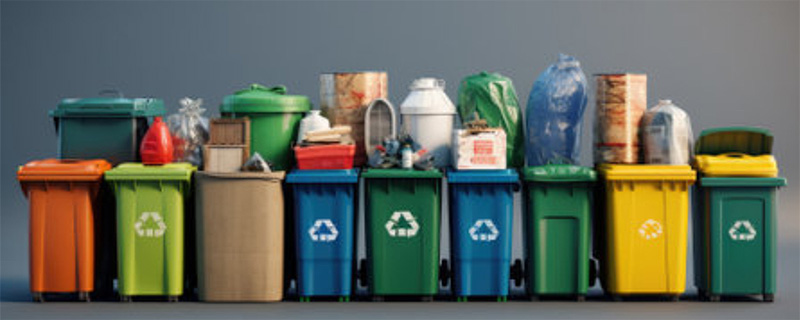DEFRA: ‘Simpler Recycling’ Plan Published
Long-awaited proposals on standardising recycling services have been published, including statutory collection of glass, metal, plastic, paper and card and garden waste, with food waste slated from 2026.
Finalised plans for consistent collections for households and businesses in England, rebranded ‘simpler recycling’ in September, were initially promised by the end of 2022.
Local authorities and waste management companies have been left frustrated over a series of delays, LGC’s sister title Materials Recycling World reports.
MRW understands collection of the core set of materials will start for businesses, schools and hospitals in March 2025. Local authorities will be required to implement services in March 2026, but flexibility given to those in long-term contracts. Flexible plastics will be added to the core materials in March 2027.
The Department for Environment, Food & Rural Affairs confirmed weekly food waste services will be required for “most households” from 2026. It said this would help end the “threat of smelly waste waiting weeks for collection” under three and four-weekly residual services which it said was a trend “particularly in Wales”.
The proposals include “new exemptions” to allow dry recyclables to be collected in the same container, bin or bag “to reduce the number of bins required”.
Under existing TEEP (technically, environmentally and economically practicable) rules councils are allowed to carry out co-mingled collections following an assessment. It is not clear how the new exemptions will be enacted.
Environment secretary Therese Coffey said: “Alongside weekly food waste collections, we are ending the postcode lottery of what you can put in your bin so that wherever you live in the country, you will be able to recycle the same products with confidence.”
In September, prime minister Rishi Sunak said he would ensure no household would be required to have seven bins.
Environment minister Rebecca Pow said: “Our ambitious plans will help every household, business, school and hospital in the country to recycle more. We have listened to councils and come up with a system that will increase recycling in a way that does not clutter our pavements with numerous bins and smelly food waste collections for weeks, making recycling simpler and more effective.”
The District Councils’ Network backed the flexibility granted by Defra for authorities to adapt local services but said it was concerned that residual waste would need to be collected at least fortnightly. It added it would be “challenging” for some councils to implement weekly food waste services.
DCN said it was “hard to believe” that all councils will be able to procure new equipment and vehicles within two years to meet the new requirements.
Sarah Nelmes, DCN environment spokesperson, said: “Although we will be spared the costs of buying vast numbers of bins and vehicles for the sole purpose of conforming to top-down stipulation, there will still be significant costs attached to the reforms, and we await further detail from the government on how they will be funded.
“Any ongoing costs must be covered through either new burdens funding from the government or from the upcoming EPR scheme.”
Local Government Association environment spokesperson Darren Rodwell said: “What works in urban centres is different to rural communities. We are pleased the government has listened to the LGA and councils and decided not to significantly reduce the flexibilities in how councils collect waste from people’s homes.”
However, Paul Sanderson, chief executive of the Recycling Association, said it was “disappointing” that local authorities in England will be able to commingle materials.
He added: “We would have preferred paper and cardboard to be kept separate as a minimum. That would have avoided contamination and enabled better quality of paper and cardboard, but also the other materials where paper can act as a contaminant.”
Environmental Services Association executive director Jacob Hayler said the announcement brought clarity after “five years of uncertainty and delay”.
He added: “Significant questions still require answers though before our industry can invest in new recycling infrastructure to meet these requirements.
“In particular, we need to understand the detail of how simpler recycling will work with the emerging [extended producer responsibility] regime for packaging – whereby packaging producers will pay for the system – and any constraints imposed on how councils collect materials at the kerbside.”
Defra is to launch a four-week consultation on widening the definition of non-household municipal premises to include places of worship, prisons, charity shops and residential hostels.
The department also wants to beef up background checks waste traders and overhaul the waste tracking system.
Source: Local Government Chronicle



 Statement from The Recycling Association chief executive Paul Sanderson on launch of Simpler Recycling
Statement from The Recycling Association chief executive Paul Sanderson on launch of Simpler Recycling



The long-awaited proposals for standardizing recycling services in England represent a significant step forward in addressing the complexities of waste management. The introduction of a statutory collection for key materials like glass, metal, plastic, paper, card, and garden waste will simplify the recycling process for households and businesses alike. However, the frustration among local authorities and waste management companies due to delays highlights the challenges of implementing such sweeping changes. The phased approach, with businesses and institutions starting in March 2025 and local authorities following in 2026, allows for a smoother transition, though the flexibility granted to those with long-term contracts may pose additional hurdles. The inclusion of flexible plastics in the core materials by March 2027 underscores the ongoing evolution of recycling needs and practices as we strive for more sustainable waste management solutions.